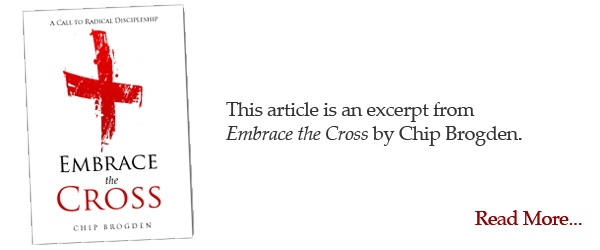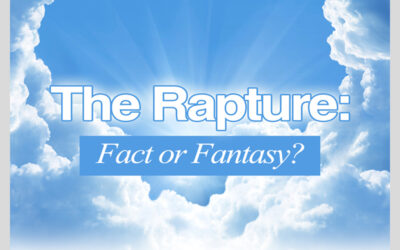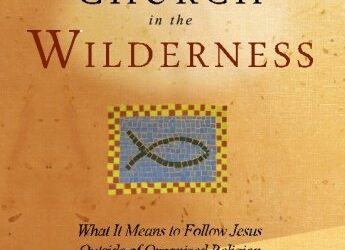We must become foolish in order to be wise.
We must give up everything in order to get back everything.
We must become weak in order to be strong.
We must die in order to live.
We can quote these teachings of Jesus, seek to imitate Him as our Example, strive to walk the narrow Way, and even accomplish many good deeds in His Name. But apart from the Cross these activities are wood, hay and stubble. The moment we are challenged or confronted by the opposition we will fall away. Perhaps we can appear to be patient, but a day comes when we lose our patience. Perhaps we can appear to be gentle, but a day comes when our roughness is revealed. Perhaps we can appear to be humble, but a day comes when pride is discovered in us and we fall. Perhaps we can obey the letter of the law and appear outwardly to others as being righteous, but when alone and faced with the secrets of our heart and mind we discover that the inside of the cup is full of uncleanness.
In calling us to come back to the Cross, God is asking us lay down our lives and embrace the Wisdom of death, burial, resurrection, and ascension in order to live as sons and daughters within the Kingdom of God. Apart from the Cross we can neither enter the Kingdom nor live in the Spirit, no matter how great the desire. For apart from the Cross, we do not know what it is to turn the other cheek, to go the extra mile, to love our enemies, to pray for those who persecute us. Apart from the Cross, we do not know what it is to submit to the will of God, accept suffering, and cast ourselves upon Him.
Apart from the Cross, we do not know what Resurrection is.
Religion seeks to reform a man; the Cross seeks to crucify him. Religion may fail to bring about the desired result, but the Cross never fails to achieve its end. Mankind will pursue morality, virtue, spirituality, even perform religious works and good deeds, in order to avoid death on a Cross. But there are no wounds, no scars, no evidence of having ever died and been made alive unto God. Either a man has never died, or he has died and been raised again. You cannot fake a resurrection.
The Cross is the means by which God reduces us to Christ, that we may be raised to new Life. What cannot be accomplished in a lifetime of self-effort is easily accomplished in God through the Cross. We may take many shortcuts along the way and attempt to escape the inevitable, but the day we cease striving and meekly accept the Cross we find everything is done for us. In fact, death by crucifixion cannot be accomplished by suicide. We cannot crucify ourselves. The instrument of our death is chosen for us, as well as the manner in which it is carried out, the timing and the duration of the execution – all is controlled by Another. There is nothing to be done, for we must submit to the Unseen Hand and cast ourselves completely upon Him.
If we will follow Jesus, we must take up the cross daily, deny ourselves, and follow Him (Luke 9:23).
The Cross is Wisdom Through Foolishness
“For the preaching of the cross is to them that perish foolishness (I Cor.1:18a).”
There is a wisdom which comes from above. This wisdom is counter to the wisdom which is earthly. Our thoughts, reasonings, arguments, rationales, and opinions are worthless in God’s sight. We are commanded to have the mind of Christ and seek the Wisdom which comes from God.
Humanly speaking, the Cross makes no sense. If we approach God with our minds only, we will never know Him. If we study the Cross in order to gain a new teaching or doctrine it will make no impression on us. Indeed, we may memorize the appropriate verses of Scripture, even teach others what we have learned, and never experience the reality of it. How easily and freely we may talk about dying to self, taking up the cross, and living the crucified life. But knowledge without experience is nothing. Indeed, knowledge without experience only deceives us into thinking we are living something just because we are able to rehearse a few facts mentally. This counts for nothing in spiritual matters.
We must ask God to empty us of our preconceived ideas and notions and fill us instead with His Mind. We must relinquish our wisdom and receive His Wisdom. His Wisdom is how He sees things. How we see things is irrelevant, and will mislead us. His Ways and His Mind are higher than our ways and our mind. The Cross is the means by which God seeks to destroy the earthly wisdom and the carnal mind. The Cross, then, is wisdom through foolishness.
The Cross is Gaining Through Losing
In order to accumulate more, we usually think that we must add to that which we have already. The Wisdom of God teaches us that in order to gain, you must first lose. Think of a child who refuses to let go of his old, broken toy in order to receive new ones from his father. To his mind he is losing something. But by letting go, by giving up, he gains.
Like the child, we stubbornly refuse to relinquish our grip on our spiritual possessions. We tenaciously cling to things as a child would cling to a collection of broken toys. We collect teachings, experiences, and good deeds, pointing to these as proof that we are spiritually endowed. Until we are willing to part with our “riches” we will not be able to receive the true Riches of Christ in us. The Cross demonstrates that we do not gain by trying to get, but by losing in order to gain. We cannot really receive from God until we have learned to give up unto God. It is the spirit which cries, “Not my will, but Thine be done” and “Father, into Thine Hand I commit my spirit.”
These words are easily uttered, but we cannot appreciate them or really experience them until we have been through our Gethsemene experiences and our Golgotha experiences. Until that time we are merely reciting some words, but we do not truly know what it means to give ourselves up to God, to be completely consecrated and submitted to Him. The Cross prepares us to receive by first forcing us to give up. Therefore, the Cross is gaining through losing.
The Cross is Power Through Weakness
“God hath chosen the weak things of the world to confound the things that are mighty (I Cor. 1:27b).”
To the natural way of thinking, power and weakness are opposites. That is, in order to have power, we must eliminate weakness. The Wisdom of God teaches us differently. This Wisdom tells us that the weak things are chosen to overcome the mighty things, and power works concurrently with weakness.
The Cross is meant to inflict pain, weaken, and slowly kill. It is the ultimate expression of weakness. The victim is stripped naked and nailed to the wood through their hands and feet. Their weight is supported by their legs until they are too tired to stand. When their legs give way their entire weight is supported by their outstretched arms (to speed this process along the legs are sometimes broken). The chest cavity is eventually pulled apart from this stress and the helpless victim slowly dies of suffocation as the lungs collapse.
The crucified one can hardly move, much less struggle. Once the nails are in place there is no way to remove them. You carry nothing with you, and have nothing remaining. You can neither speed up nor slow down your death. The shame of your nakedness is open for all to see. Besides the physical suffering, the soul is stripped of its dignity and pride. There is no escape.
God desires to give you power, but that power only comes through weakness. Any power not obtained through weakness is illegitimate, no matter how spiritual it appears. The only legitimate power is granted to those who have been made weak. Power is birthed in weakness. Many exude a certain “power”, but there is not the corresponding weakness. Hence, the power only gives them an occasion for boasting. To remedy this, God has ordained that all who would have His power must first be weakened and made empty – we refer to this as being “broken”. The purpose of weakness and suffering is to open the way for His Power. The instrument God uses to weaken us is the Cross. Therefore, the Cross is power through weakness.
The Cross is Life Through Death
“I am crucified with Christ: nevertheless I live: yet not I, but Christ liveth in me (Gal.2:20a).”
There can be no Resurrection Life without a Crucified Death. Naturally we expect that in order to live we must avoid death at all costs. Yet, the Wisdom of God teaches us that Life is found by embracing Death – that is, as we die to ourselves we are made alive unto Christ.
There is a principle of death that works in us. When we are born, we begin to age and die. For the one in Christ, physical death is not the end, but the beginning. Likewise, a God-ordained death on the Cross is not the end, but the beginning. The Cross works death in us that the Spirit may work life in us. The Cross kills that which needs to be killed in us, whereas the Spirit gives Life to that which has been killed. The Cross beats and tears down, while the Spirit rebuilds that which has been destroyed. Only those who have experienced Death can truly minister Life and speak to dead men.
Now if we have not learned what it is to die daily, we will not experience the life of God daily. In a word, I am dead, yet I am living. I am crucified, yet I am alive. On the one hand I am weakened to the point of death and powerless; on the other hand, I live by the power of God and am strengthened with all might by His Spirit which indwells me. The moment I cease to experience death, however, at that precise moment I cease to experience life, for the cross is life through death.
The Aim of God’s Dealings
“Verily, verily I say unto thee, when thou wast young, thou girdest thyself and walkedst whither thou wouldest: but when thou shalt be old, thou shalt stretch forth thy hands, and another shall gird thee, and carry thee whither thou wouldest not (John 21:18).”
Though our heart attutude should be childlike, God desires us to be men and women of maturity. He desires us to grow spiritually. In order to accomplish this He allows us to meet with many disagreeable circumstances and trials.
When we are young in the Lord we do as we please. We find much pleasure in serving the Lord according to our own thought, and everything is light and gay. We live a life of feeling and sensation. We are easily moved by how we feel. If we are happy we gladly deny ourselves and pour ourselves out in service. But when we are sad or troubled by our circumstances we feel as though we have been deserted. The Lord must then reach forth and draw the little sheep back to Himself again, whereupon our feeling is restored and we renew our devotion with the same vigor as before. This is the way of those who are young: they dress themselves and go where they wish.
But when we are older in the Lord, the life of faith commences as we stretch forth our hands in surrender and allow Another to dress us and carry us where we do not wish to go. We no longer dress ourselves and go our own way. We no longer walk, but we are carried. We may no longer consider our own wishes. We may no longer act according to a will of our own apart from God’s will. Instead, we have finally submitted to God’s dealings with us. We recognize at last how we have until now been full of ourselves, speaking many words in addition to what God had given us, and performing many acts apart from the ones that God was calling us to perform. Likewise, we see how often we have failed to speak and act on many occasions because we simply loved ourselves more than we loved God.
This transition between a life of feeling and a life of faith, from being self-ruled to being Spirit-ruled, does not happen in a few days. What stands between the experience of the young and the experience of the old? What is it that brings about this maturity? How is this growth achieved? By what means does God accomplish this work of transformation? In speaking to Peter, the Lord is telling him by what death he will die to glorify God (v.19). We know that Peter was eventually crucified upside-down and died a martyr’s death. But, the daily cross of self-denial that Peter bore was the means by which God was able to subdue his wild nature and transform him into a man of faith. His was a living sacrifice. The physical cross upon which he died was a testimony to his having already laid down his life a million times prior to that final act.
The death God really seeks in us is not the future laying down of our physical life, but the moment -by-moment laying down of our self. It is not the once-and-for-all martyr’s death but the daily dying and living unto God that brings Him the most glory. In fact, those who have not denied themselves in the seemingly insignificant matters of daily life will find it difficult, if not impossible, to lay down their physical lives should that be required of them.
God is calling us to become foolish in order to be wise; to give up everything in order to get back everything; to become weak in order to become strong; to come back to the cross and die that we may live. In these pages we hope to communicate this urgent call. Today, let us ask God to quicken this to our hearts, and grant that we may become People of the Cross, experiencing the Death of the Lord that we may have the Life of the Lord. Let us determine henceforth to know nothing, but Christ and Him crucified: for the disciple is not above the Master, but the disciple shall be as his Master (Luke 6:40).













